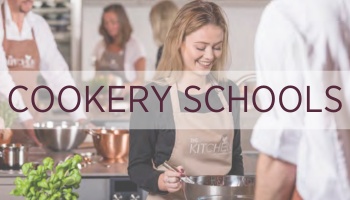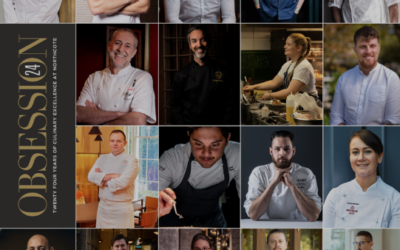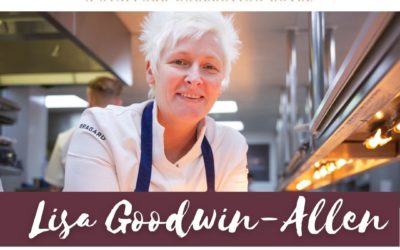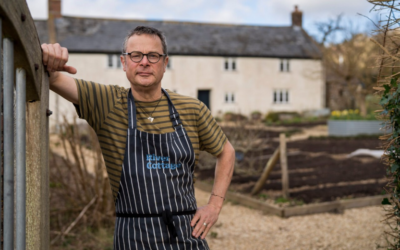The annual ‘Gourmet Britain Survey 2020’ reveals some interesting, as well as concerning and re-assuring results for the Hospitality Industry.
The Greatest British Company have announced the results of their annual Gourmet Britain Food & Lifestyle Survey, which asked over 1,000 of its Gourmet Club members, and wider public via social media channels and hospitality partners to share their plans and preferences around food produce, pubs, restaurants, hotels and cookery schools in the UK.
With the news that pubs, restaurants and bars are now set to reopen in the UK on the 4th July, many questions, doubts and concerns remain from a health, financial and sustainable perspective. How will it be possible to social distance? Will capacity and covers need to be dramatically reduced to satisfy health and safety implications? What will be the financial implications across the restaurant industry?
These logistical and operational conundrums will undoubtedly affect the vast majority of establishments across the hospitality industry. However, of equivalent importance is how will customers and consumers react, and what sort of dining experiences will they seek once the doors are flung open again?
This year’s survey was particularly important, as it gives an indication of which consumer habits are likely to change when venues do re-open post-lockdown. There are also some marked differences in respondents’ habits and opinions compared with last year’s survey, which are highlighted in the summary below, and links.
The annual Gourmet Britain Survey covers key sections which include:
- Demographic profiling and personal feelings, status at time of completion.
- Dining out, holidaying and leisure habits past, present and future
- Food shopping habits
- Charity, gifting and aspirations
Respondents can remain anonymous if they choose.
This years survey has highlighted some key changes in mood, feelings towards socialising, and a clear swing to more focus on intimate dining experiences, with over 30% indicating this is what they are most looking forward to post lockdown, clearly moving away from discount dining offers sought last year, with a focus on helping others.
Customer attitude is vital
The survey questioned a wide range of ages from all across the UK to determine how habits have or are likely to change following the lifting of lockdown restrictions and compared to past behaviours. As the hospitality industry braces itself for what may come, the attitudes of customers will prove vital to survival.
Before the lockdown, 29.9% of respondents reported dining out for pleasure once a month, while 22% dined out twice a month and 18% dined out weekly. In total, therefore, 69.9% of respondents reported dining out for pleasure at least once every month. When asked how likely they are to maintain this frequency when gourmet pubs and restaurants re-open, 30% reported they would be equally likely, while 31% said they’d be less likely and 38% said they’d be even more likely to dine out regularly again once restrictions lift.
When asked what the biggest barriers would be to dining out again, most respondents (63%) cited social distancing and hygiene concerns. A further 12.8% cited reduced personal income to do the pandemic, while 4.6% said they did not want to travel too far. A challenge for all restaurant and venue managers, seeking more re-assurances from hospitality venues on their COVID policies.
Personal finances aren’t seen as a barrier to the new world. Whilst some media reports have suggested both improved personal income due to the inability to socialise and others dramatically affected by redundancy, our survey revealed that over half have experienced no change on their financial situation although 30% have been negatively affected by changes in circumstance.
Charity and gifting has undergone a near 50% increase this year on last year, with 21% saying they are more likely to partake in a dining experience or gift if there was a charity element to it. Over 30% indicated they would be more than likely prepared to pay extra on top of the bill via additional donation, to support the industry.
Leisure Breaks and Stay-cations
As the UK braces for a surge in demand for staycations, only 23.9% of respondents said they would be taking more overnight breaks in the UK over the next 12 months. This is down from last year’s survey, where 60% said they planned to take a staycation in the next 12 months. 36.7% of respondents said there would be no change in their UK leisure break habits, while 27.1% said they would be taking fewer overnight breaks in the UK post-lockdown.
Of those who were less likely, respondents cited a tighter budget and increased health concerns over travelling (even within the UK) as key factors, with a number of respondents still due to be shielding for some time. Re-assurances were key to many venturing out.
When asked about the maximum they would spend on an overnight UK break for two, with breakfast, 36.9% of respondents said £126 to £199. 32.4% said they would prefer to spend £50 to £125, while 13.1% would spend £200 to £299 and just 4.5% said they would spend up to £450 per night.
What do we want from a UK leisure break post-lockdown?
In a multiple-choice question where respondents could select up to three regions of interest, the South West came out as a clear winner with 61.3%. Also popular were Wales (38.1%), Scotland (35%), the Heart of England (27.1%) and Central London (20.7%).
In a multiple-choice question where respondents were asked what they would look for in choosing a hotel for a UK leisure break, 73.9% cited the region, while 57.1% cited price. Other important factors included ratings on review websites (39.9%), the overall experience (34.8%), a peaceful, rural location (29.5%) and facilities such as a gym, golf course of spa (22.7%), was down on last years results. Amongst the lesser considerations this year were hospitality or dining awards (14.3%) and a bustling, urban location (9.3%).
Dining Out
In terms of dining out habits, respondents reported very little change in their plans to dine out regularly again. People are most looking forward to spending time with friends and family in pubs and restaurants post-lockdown but will be more wary of hygiene and social distancing measures. ‘Missed celebrations’ and ‘re-connecting with friends and loved ones’ were amongst the top reasons to seek out a special dining experience. A ‘Thank You Gift’ was a newcomer this year citing COVID-19 support of individuals.
Venues will need to take all appropriate steps to ensure diners feel reassured, including distancing tables, limited diners and staff wearing PPE. Welcoe stations, possible temperature checks, hospitality grade hand sanitizer on entry, table dressing after ordering, wrapped cutlery, and more regular cleaning were frequently cited requirements from customers.
£50 to £90 was the price most respondents were willing to spend on a three-course meal for two with wine, both pre- and post-lockdown. The £100 to £149 is the next most popular bracket, with fractionally less people now willing to spend more than that, and fractionally more people now looking to spend less than £50.
British Produce Support
Amongst those who said they were more likely to seek out British produce, most respondents (84.9%) said they believed it was important to support British producers. 31.5% said it was simply a personal choice, while 27.3% referenced the economy. 18.7% said COVID-19 has made them more likely to shop for British produce. ‘Buying Local’ was a more popular phrase than ‘Buying British’ in this years survey, last year being at the height of BREXIT. Support for local independent shops, farmers and producers was widely highlighted. One responder summarised the general concenus with their comment “British food producers have supported us during the pandemic – now it’s time we gave something back.”
Potential changes in dining habits are not the only concern to British food and drink businesses. Shopping mentality has undoubtedly been affected as many felt unable to go to the supermarket or were heavily encouraged not to. However, British producers can be encouraged by the fact that over 50% of our survey said they would seek out specifically British produce more than before, a welcome boost for our home grown businesses as many (nearly 85%) felt it important to support our quality producers, appearing in both food shops and on restaurant menus.
English Wines
English wine consumption was up a little on last year at 27% with awareness still low. With less than a third of respondents in this years and last year’s survey sampling English wines. Most respondents said they had either ‘never heard of ‘ most English wines, representing a tremendous opportunity to raise awareness, or that they found them too expensive compared with other world wines.
Cookery Skills
Almost a third of respondents (27.9%) have become more interested in learning new cookery skills since the lockdown. Fish and seafood, world cuisine, artisan bread-making and specialist chef skills will be amongst the most in-demand cookery courses post-lockdown. Location of the course to the recipient was amongst the highest factors for choosing a cookery school. Although they would travel further for a more in-depth or accredited course with clear skills or specialisms. Remote courses on-line were more appeared this year with an increased interest in remote learning.
For in-person courses, over a third of respondents want to learn in small groups, and almost a third want to see appropriate social distancing measures in place. Celebrity endorsement has become much less of a driving factor since lockdown.
Future Industry Positivity
Fuelled by the scaremongers and obvious uncertainty, there does appear to be some hope for the hospitality industry. There has quite understandably been a level of panic however our survey suggests that things may be more positive than we first thought. Indications point to more focus on a more experiential dining occasions, with clear signals on COVID safety concerns. Seasonal British produce remains key to appear on menus and so far diners indicate they continue to seek value, not necessarily discount for a more premium experience, with a high propensity to support the hospitality industry where possible.
Greatest British Hospitality Company founder James Day, who’s company distributes the annual survey said,
“Of course there are challenges facing all our restaurants and venues, however we were delighted to find that, according to our survey, the majority of people are looking forward to getting back out there and enjoying the very best of the British hospitality industry. We know there are so many uncertainties for diners and businesses alike, but indications show that the is a real positive feelings towards the industry and clear willingness to get out and spend on dining experiences.
We would like to think that working together we can all help get the industry back on its feet. Right now though, we really need some definitive guidance from which we can all work.”
If you are a business in the hospitality sector and need support in the post pandemic world then please get in touch. We can help with reestablishing or changing the direction of your marketing strategy, branding and day to day promotion.
Comparison: Gourmet Britain Survey 2019 analysis results
‘Gift To Share Experiences Campaign’ Launched to support the Hospitality Industry. More here
In-depth survey results and analysis?
All findings (c) Gourmet Britain Survey 2020.
Carried out between April 20th & June 20th 2020. Comparable period to previous years.
Respondents were average age 45-65. 65% female. UK wide.












